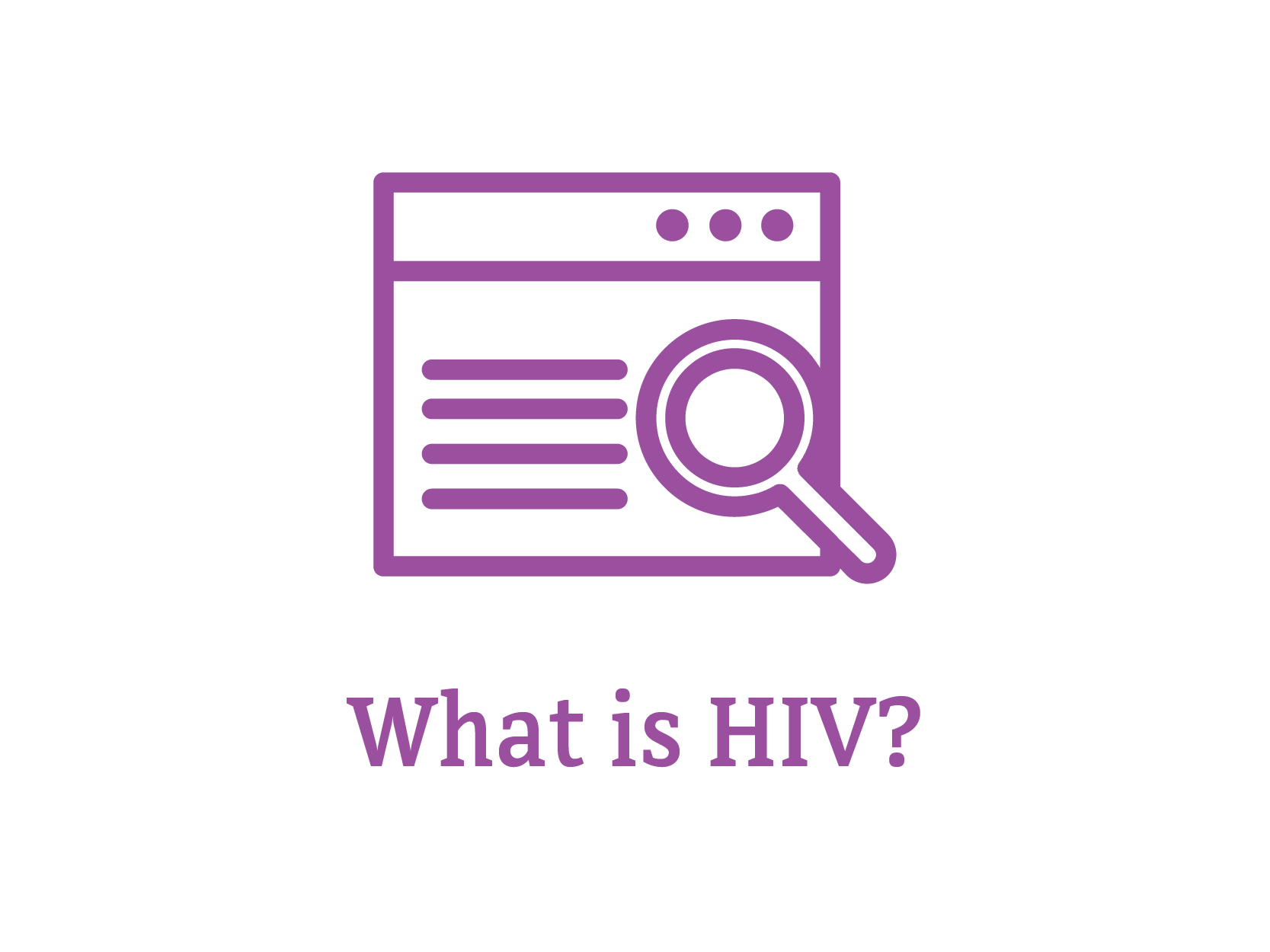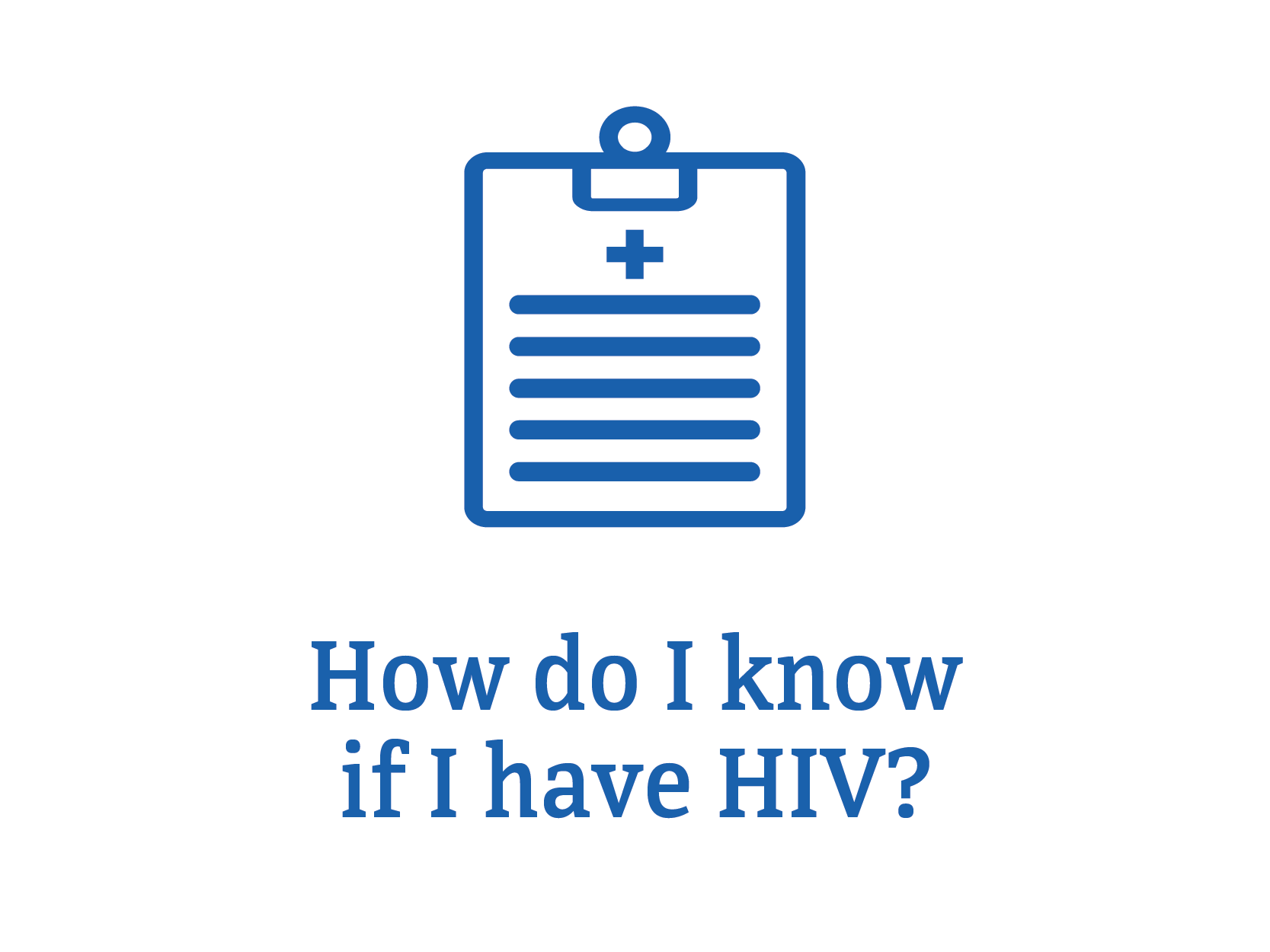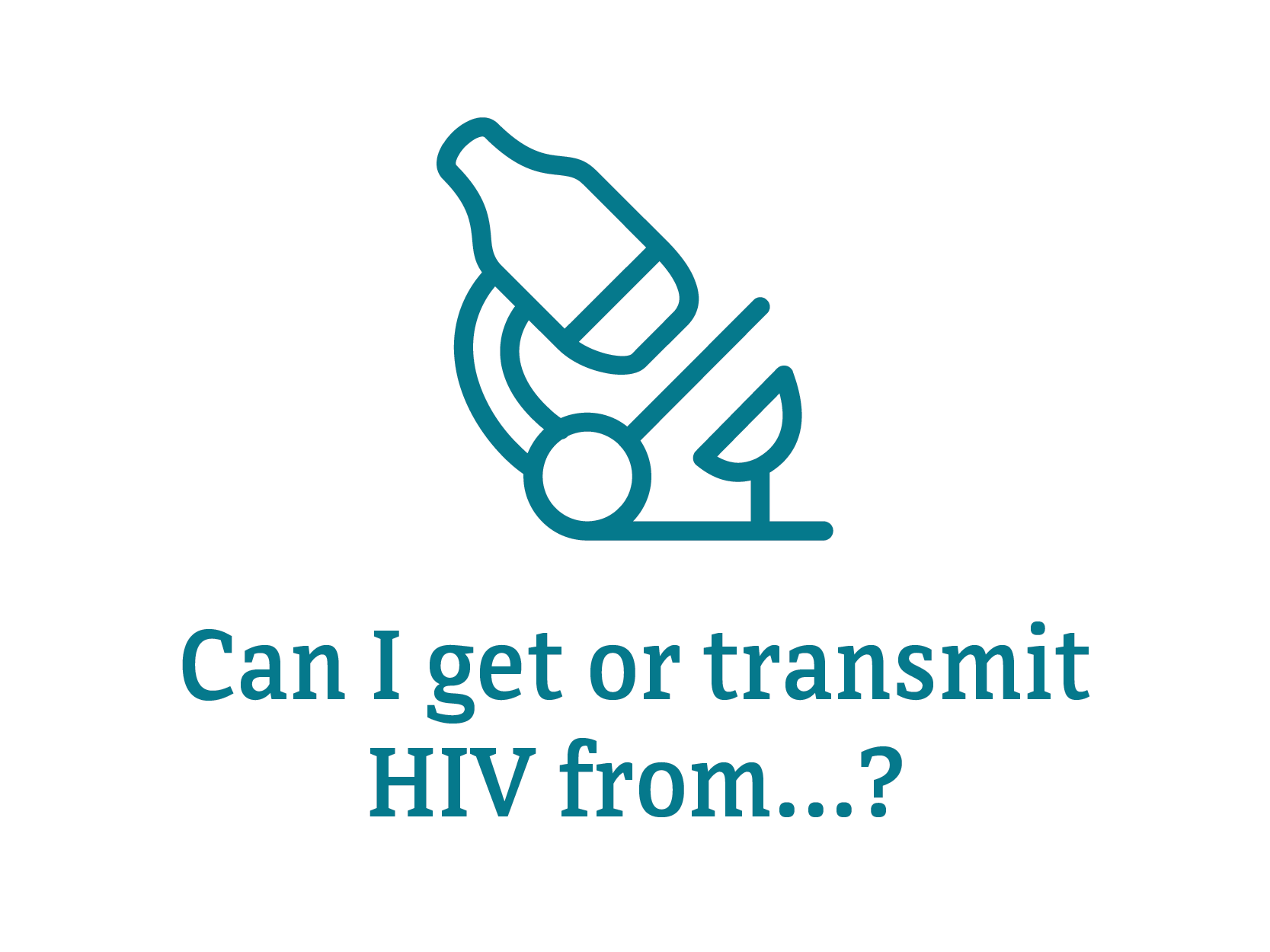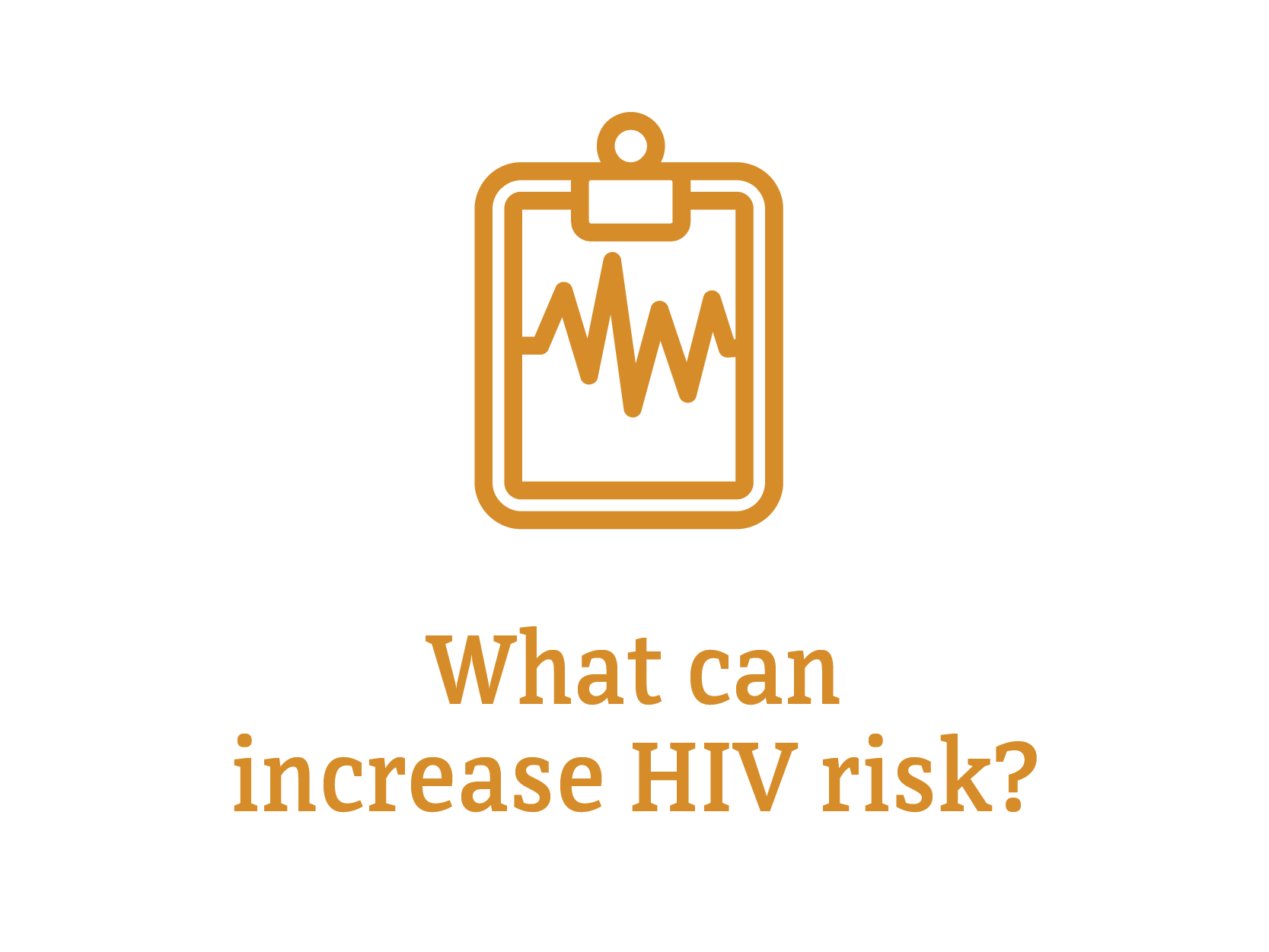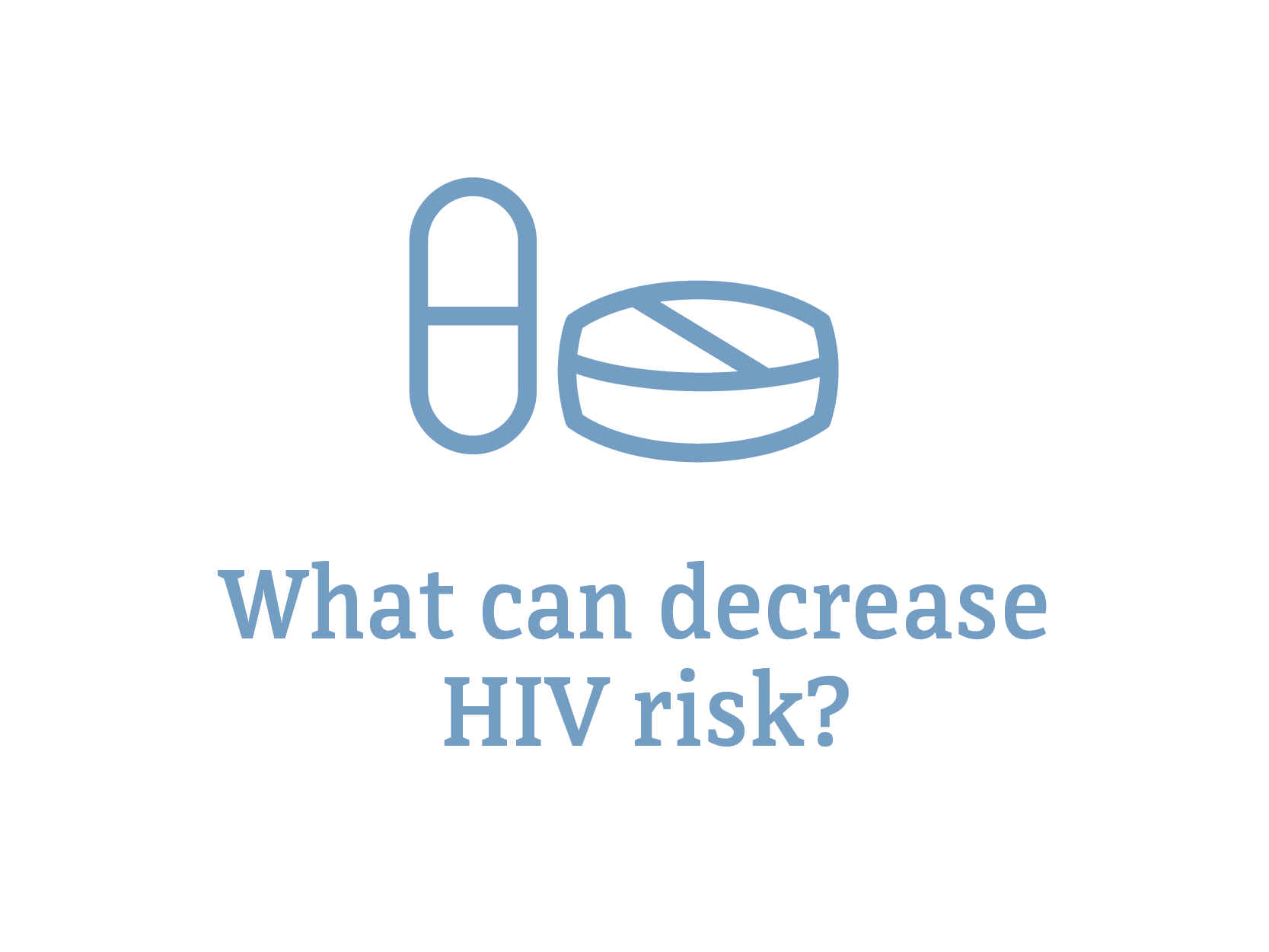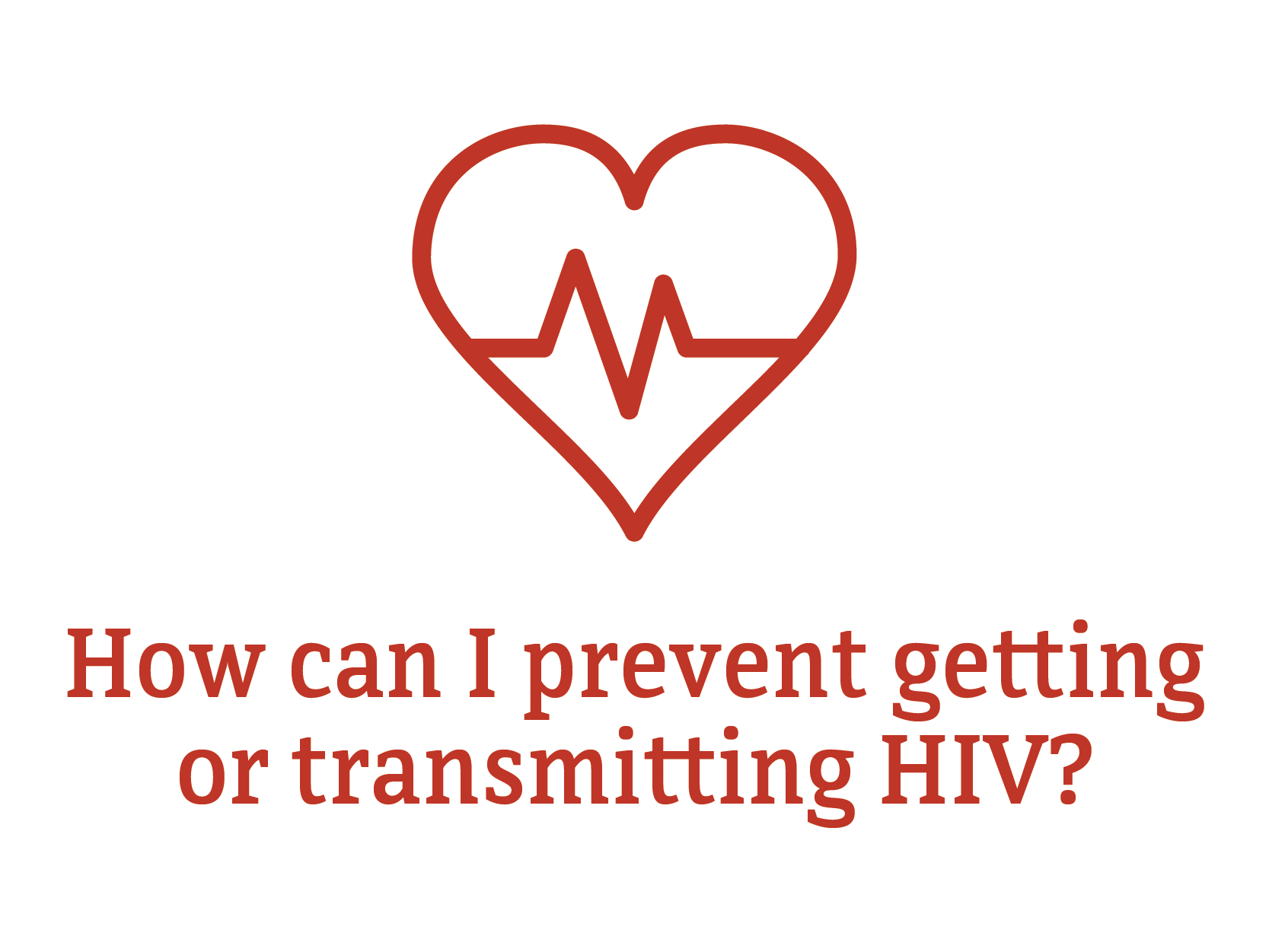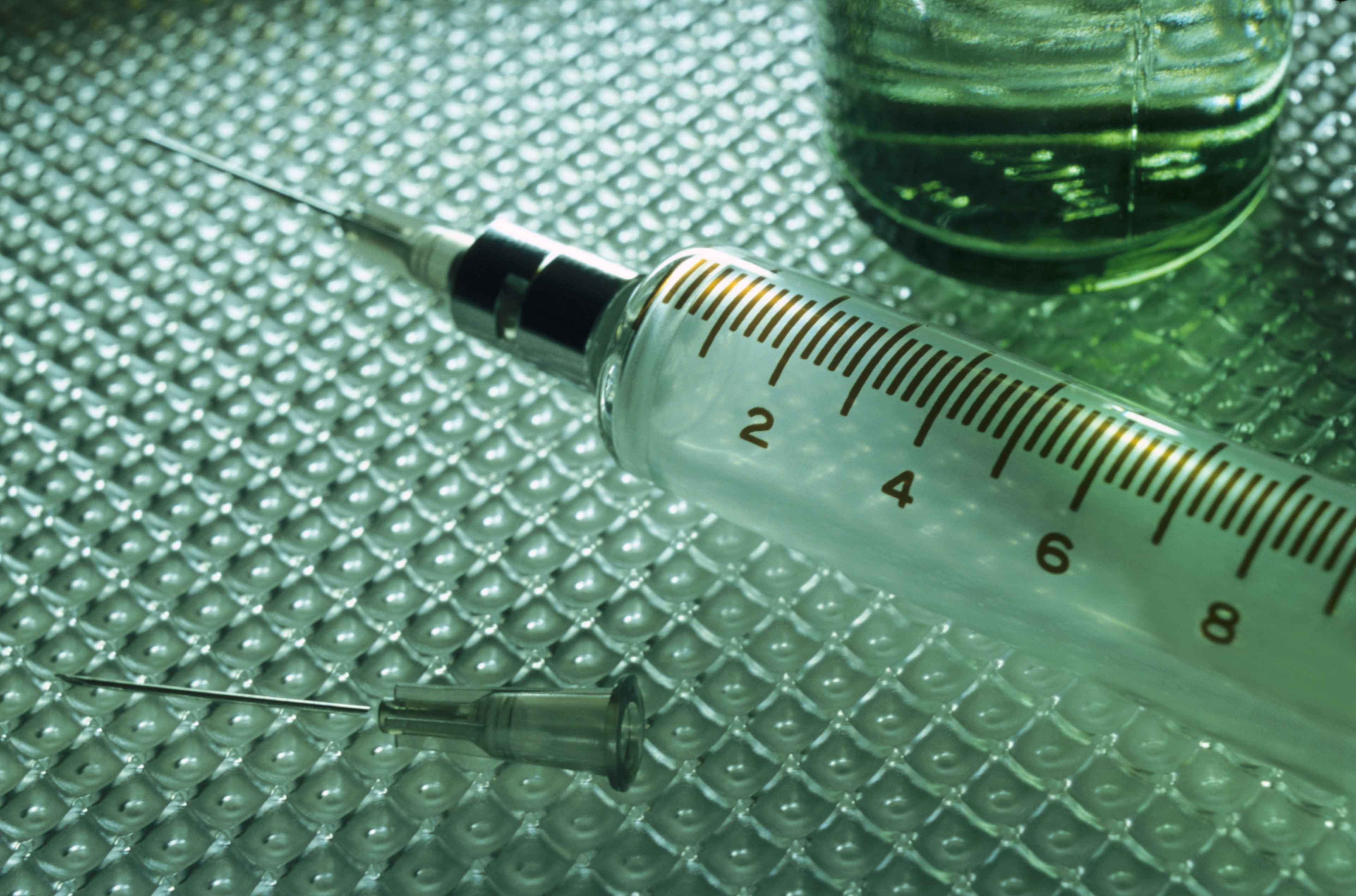Use condoms the right way every time you have sex.
Oral sex is much less risky than anal or vaginal sex. Anal sex is the highest-risk sexual activity for HIV transmission. There is extremely low to no risk of getting HIV through oral sex. Sexual activities that don’t involve contact with body fluids (i.e., semen, vaginal fluid, or blood) carry no risk of HIV transmission.
Having multiple sex partners increases your risk for HIV and for other STDs.
If you’re HIV-negative, consider pre-exposure prophylaxis (PrEP), taking HIV medicines as prescribed to prevent HIV infection. If taken as prescribed, PrEP is highly effective for preventing HIV from sex or injection drug use. But it’s much less effective if you don’t take it consistently.
PrEP is recommended for people who are HIV-negative and at risk for getting the virus from sex or injection drug use.
For sexual transmission, this includes people without HIV who:
Have had anal or vaginal sex in the past 6 months and:
•Have a sexual partner with HIV (especially if the partner has an unknown or detectable viral load)
or
•Have not consistently used a condom
or
•Have been diagnosed with a sexually transmitted disease (STD) in the past 6 months
For people who inject drugs, this includes those who have an injection partner with HIV, or have shared needles, syringes, or
other injection equipment .
If you’re HIV-negative, talk to your doctor right away (within 3 days) about post-exposure prophylaxis (PEP) if you
have a recent possible exposure to HIV.
An example of a possible exposure is if you have anal or vaginal sex without using a condom, or the condom breaks or
slips while having sex, with someone who has or may have HIV, and you’re HIV-negative and not taking PrEP. Starting
PEP immediately and taking it daily for 28 days reduces your chance of getting HIV.
If your partner with HIV is taking HIV medicine as prescribed and keeps an undetectable
viral load, they will not transmit HIV to you through sex.
Get tested and treated for other STDs and encourage your partners to do the same. Find an STD testing site.
STDs can have long-term health consequences, and they can increase your chance of transmitting HIV or getting HIV.
If you have HIV, take HIV medicine, called antiretroviral therapy (ART) to get and keep an undetectable viral load.
You can protect your partner from HIV if you take ART as prescribed AND get and keep an undetectable viral load.
ART is recommended for all people with HIV, regardless of how long they’ve had the virus or how healthy they are. ART can reduce the amount of HIV (viral load) in the body. Taking ART as prescribed can make the viral load so low that a test can’t detect it. This is called an undetectable viral load. If a person with HIV keeps an undetectable viral load, they can stay healthy for many years and will not transmit HIV through sex.
If you’re taking ART, follow your health care provider's advice.
Visit your health care provider regularly and always take your medicines as prescribed.
If your partner has HIV, encourage your partner to get and stay on treatment.
This is the most important thing your partner can do to protect their own health. If you are HIV-negative and your partner with HIV takes their HIV medicine as prescribed AND is able to get and keep an undetectable viral load, they will not transmit HIV to you through sex.
If you are HIV-negative and your partner with HIV has an undetectable viral load, you or your partner may want to use additional prevention.
Using a condom the right way every time you have sex can protect you from other STDs. Using condoms or having the HIV-negative partner take medicine as prescribed to prevent HIV (called pre-exposure prophylaxis or PrEP) can provide added peace of mind. Also consider using additional prevention methods if the partner with HIV
- Is unsure, for any reason, that they have an undetectable viral load
- Has a higher viral load (200 copies/ml of blood or greater)
- Has trouble taking HIV medicine regularly
- Missed some doses since their last viral load test
- Has stopped taking HIV medicine or may do so in the future
You and your partner(s) should learn about all the available prevention options and make the decisions that are right for both of you.





